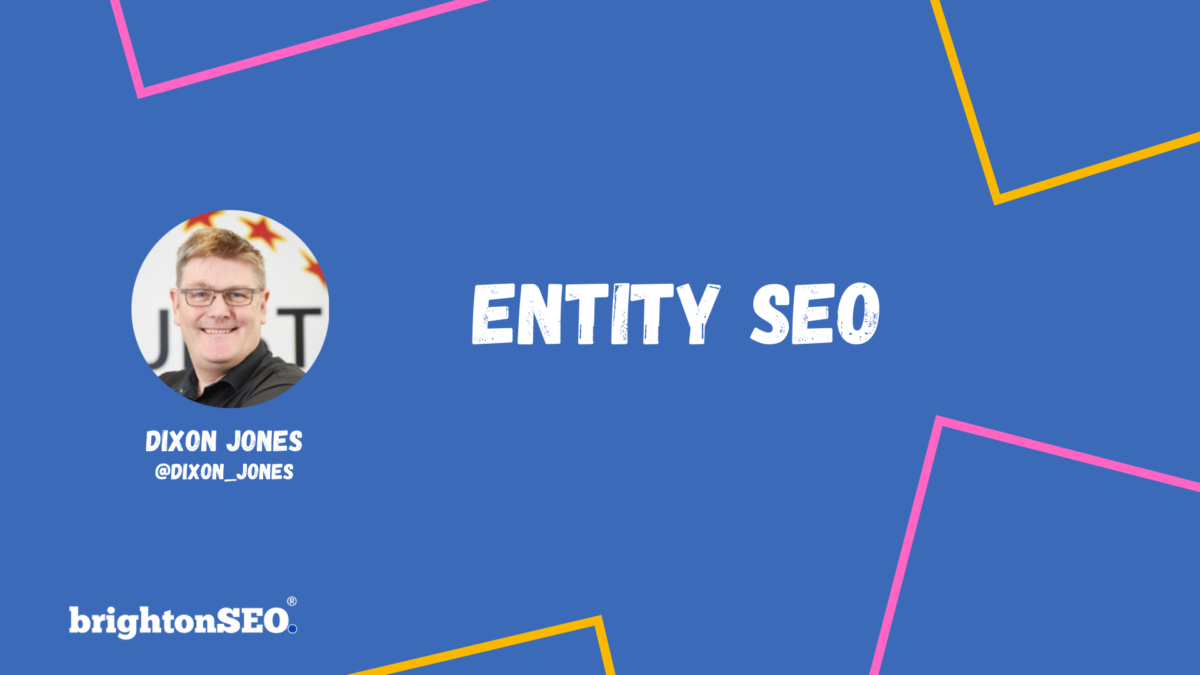Understanding Entities For SEO
Search Engine Optimisation, or SEO, is an essential part of digital marketing. Its purpose is to improve a website’s visibility and ranking on search engine results pages (SERPs) through various strategies, such as content optimisation, link building, and keyword research. One key factor in SEO is understanding entities, which are the people, places, things, and concepts that search engines use to organise and present information. In this article, we will discuss what entities are, why they matter for SEO, and how to optimise content to improve entity recognition.
What are entities?
Entities are the fundamental building blocks of information on the Internet. They are the things that people search for and the subjects of content. Entities can be anything, from a person’s name to a company’s address, to a product’s brand name. Essentially, entities are anything that has a name, a type, and a unique identifier.
Entities are organised in a knowledge graph, which is a database that contains information about the relationship between different entities. A knowledge graph is similar to a web of information, where each entity is connected to other entities through a network of links.
Why do entities matter for SEO?
Entities matter for SEO because they are how search engines like Google and Bing organise and understand the content on the Internet. Search engines use a complex algorithm to analyse content and identify the entities that are being discussed. Once the entities are recognised, search engines can present the most relevant results to users.
By optimising content for entities, you can improve your website’s ranking on search engine result pages. The more search engines understand the content on your website, the more likely it is that your website will appear as a relevant result when people search for related topics. It’s as simple as that!
How to optimise content for entities
Now that you understand the importance of entities for SEO let’s discuss how to optimise content for them.
Conduct entity research
The first step in optimising content for entities is to conduct research on the entities that are relevant to your industry or niche. The keyword here is ‘relevant’ (pun intended). This research will help you identify the most important entities and how they are related to each other.
One way to conduct entity research is to use tools such as Google Trends, Google Keyword Planner, and SEMrush. These tools can help you identify the most-searched-for entities in your niche and the keywords that are commonly associated with them.
SEMrush is a very popular SEO tool that can help you find entities relevant to your industry or niche. To find entities with SEMrush, start by selecting the ‘Keyword Magic Tool‘ and entering a relevant keyword related to your industry or niche. Then, click on the ‘Related Keywords‘ tab to view a list of related keywords and entities. You can also use the “Keyword Difficulty” metric to find high-value entities that are easy to rank for. Additionally, SEMrush’s ‘Topic Research‘ tool can help you find popular topics and entities related to your keyword, and the ‘SEO Content Template‘ can suggest relevant entities to include in your content.
Use structured data (Schema markup)
Structured data is a way of organising information on your website in a way that is easy for search engines to understand. It involves using a specific markup language to tag entities and their properties.
By using structured data on your website, you can provide search engines with a clear understanding of the entities on your website. This can improve your website’s visibility on search engine results pages and help you to rank for relevant keywords.
Note: When search engines acknowledge the significance and interconnections of entities on your website, they can provide enhanced outcomes in the SERPs, also known as rich results or rich snippets.
Use entity-specific keywords
Entity-specific keywords are keywords that are directly related to a specific entity. For example, if you were optimising content for a car dealership, entity-specific keywords would include the names of car models, car brands, and car-related terms.
By using entity-specific keywords in your content, you can help search engines like Google to understand the entities that you are discussing. This can improve your website’s visibility on search engine results pages and help you to rank for relevant keywords.
The difference between entities and keywords
The primary difference between entities and keywords is that entities are concepts, people, places, and things, while keywords are specific words or phrases that are used to find information. Keywords are used to help search engines match user queries with relevant content, while entities are used to help search engines understand the context of a piece of content.
While keywords are still an important part of SEO, entities are becoming increasingly important for ranking on search engine result pages. By focusing on entities, you can create more relevant and high-quality content that connects with your target audience and improves your website’s visibility on search engine results pages.
Create content that is relevant to entities
When creating content, it is important to keep in mind the entities that are relevant to your industry or niche. By creating content that is relevant to these entities, you can improve your website’s relevance and authority on search engine results pages.
For example, if you are a car dealership, creating content that discusses car models, car brands, and car-related topics can help to improve your website’s relevance for these entities. This can help you to rank higher on search engine result pages when people search for these entities.
Keep content up-to-date
Entities are constantly changing and evolving, and search engines are always updating their algorithms to keep up. To stay ahead of the curve, it’s important to keep your content up-to-date and relevant to the latest entities in your industry or niche.
By regularly updating your content and keeping it relevant to the latest entities, you can improve your website’s visibility and authority on search engine results pages.
Conclusion
Entities are a fundamental part of SEO, and understanding them is essential for improving your website’s visibility and ranking on search engine results pages. By conducting entity research, using structured data, using entity-specific keywords, creating content that is relevant to entities, building high-quality backlinks, and keeping content up-to-date, you can optimise your website for entities and improve your SEO strategy.
Remember, SEO is an ongoing process, and it takes time and effort to see results. By focusing on entities and following the tips outlined in this article, you can improve your website’s visibility and ranking on search engine result pages over time.
Entity-based SEO is a new subject with many possibilities, but reliable techniques have yet to be established.
Who is Dixon Jones?
Dixon Jones is one of the first SEOs (digital marketer) to make a name for himself. Name an SEO award and Dixon Jones has won it.
He has been UK Search Personality of the year (UK Search Awards), Outstanding Technology Individual of the Year (Silicon Canal Awards), he was awarded the first-ever UK Lifetime Achievement Award by the UK Search Awards, he has taken Majestic to Buckingham Palace as a Queens Award winner and even to the International Space Station, where they produced a 3D Printer visualization of the Internet (which returned to earth on SpaceX). He has won it all.
Dixon Jones has also been a keynote speaker at many international and UK conferences and universities, including Pubcon, Brighton SEO, SES & SMX. Last but not least he holds a degree in Maths and Management from Brunel University (where he was also the S.U. President) and an MBA with a specialism in Strategy from Aston University.

Why do entities make it feasible to implement a long-term SEO strategy, and how can they be utilised to boost website performance?
During this talk at BrightonSEO, Dixon Jones talks about: what an entity is, why an entity is important, examples of entities, and the difference between a keyword and an entity.
Here’s the slide deck if you’d like to run through it in your own time!
About BrightonSEO
BrightonSEO – is a major search marketing event in the UK. One of our favourite events of the year, This is a superb conference for search marketing professionals, novice or expert. BrightonSEO is a chance to learn from some of the best minds in search, and then rub shoulders with them at one of the friendliest, and largest, gatherings of Digital Marketers in Europe.


Leave a Reply